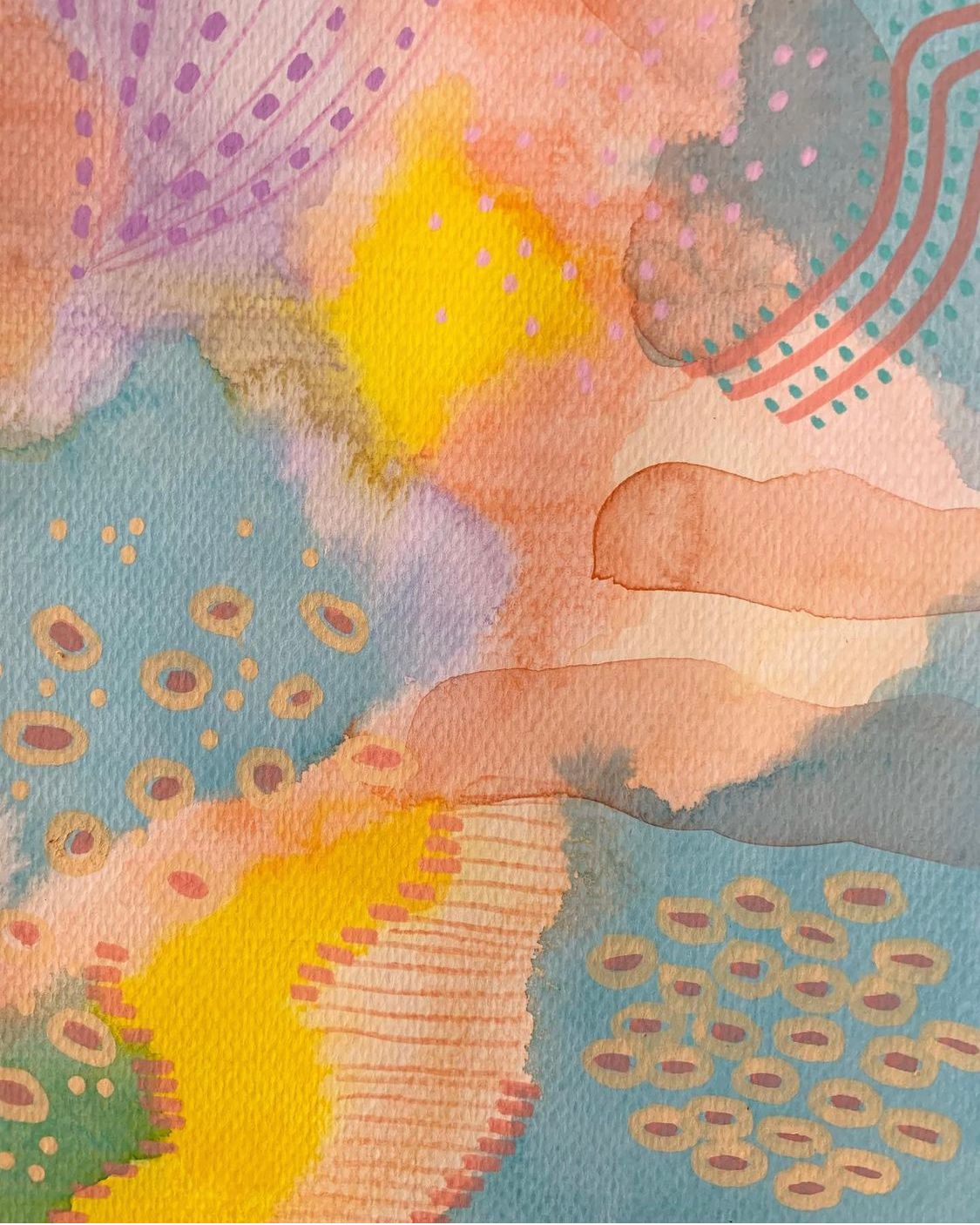When I was a teenager, we met once at a friend's house to study as a group. This friend's father, passing by the place where we were gathered, looked at our books and said: So it's better to throw the book into a bucket of paint! He was referring to the excess of italics and markings that we made with colored pens and highlighters, which perhaps indicated our inability to select what was in fact relevant from what was not. I remembered this scene, reading the book An apartment on Uranus , by Paul B. Preciado, because it's definitely a book I'd throw in a can of fluorescent paint. But contrary to what my friend's father thought, in this case, he would do it precisely because of the absolute relevance of everything the philosopher tells in this book.
For a few weeks now, among other readings, I have been dealing with this book, with Paul's words, his images drawn with words. I had made a draft to comment on it, but I always have the feeling that nothing will account for the beauty, the poetry, the urgency, the power and the ferocity of his writing. There are many quotes that I would like to transcribe here. I then make an effort of self-restraint to write about him.
An apartment on Uranus brings together what Preciado calls "chronicles of the crossing", written between 2010 and 2018 for the French newspaper Libération and other media. The term "crossing" refers to the "sex change" of its author. At the beginning of the book, she signed as Beatriz and, at the end, with her new name, Paul Beatriz Preciado.
In these chronicles, the philosopher goes through the most diverse themes, comments on news of the time, talks about books and writers, the new politics of the body, gender and sexuality, reflects on historical events, but above all, tells us about his experience of transition, in more personal and intimate texts. He presents us – as well as it can shock – with a transgressive and sharp look for all his erudition, but also for his deep and touching sensitivity.
The term crossing it gains a new layer, because, in addition to referring to Preciado's sex change process, it refers to migration, which he will also place as a metaphor for his transition process. During his crossing, he traveled to many places, practicing a nomadism. And so he experiences a place of the "in-between", of neither here nor there, which can so often make invisible. But Preciado does not allow himself to be crushed, he resists (I would write (r)exists), he claims and affirms his existence and that of so many others whose lives are constantly threatened with erasure.

In one of the texts, entitled "In the arms of Rodina-Mat", Paul tells about a trip he made from Istanbul to Kiev, wondering about those who got on the plane:
Where do they come from, where do they go? They must ask the same when they see me reading in French, writing in Spanish, speaking in English. The image of migrants crossing borders is the universal signifier that recodes us all. Who am I and what do I do here? What war am I running from? What do I traffic with? What is my refuge? (p. 172).
It is then that Preciado needs to go through immigration, where an agent thinks that the passport presented by him is not his. The photograph is from three years ago and currently, he has 250 milligrams of testosterone injected into his body every 15 days, which has already given him a beard as well as a raspy voice. To try to approximate the photo and its current appearance, he answers in falsetto:
"Beatriz", (...) accommodating myself to legality and pronouncing a name that now sounds strange to me. It took me nine months to get used to saying Paul, to respond when someone calls that name, to turn around when I hear it. But now I need to forget him. (p. 174).
After a brief discussion, in which he is questioned about being a woman, he undergoes an invasive search that, finally, finds "tactile anatomical evidence" that confirms what was in his passport. Then he picks up his luggage and finds a taxi driver with a sign that reads: "Paul".
In a few minutes, Preciado crosses and as if "uncrosses" this border that gave him so much work and realizes the "imperative of sexual difference as a condition for the possibility of national identity". Thus, the author questions borders, limits, separations and segregations, whether symbolic or concrete, material.
During the first year of transitioning, while hormonal changes sculpted my body with a microscopic chisel that works from the inside out, I was only able to live in nomadism. Crossing borders with a passport that barely represented me was then a way to intensify traffic, to certify the move. (p. 233).
In his nomadism, he makes transit, builds a place for himself. No one dares to give him a place, he is the one who courageously fabricates a place to exist. As he tells us:
The crossing is the place of uncertainty, of non-evidence, of the strange. And this is not weakness, it is a power (p. 32).
Cross An apartment on Uranus it is to share a little of the journey of its author. With availability and openness, it is inevitable to come out transformed from your reading, stirred and stirred about so many things in life. It is an essential book to think about the world we live in and the one we want to live in in the future. It is necessary to read Paul B. Preciado. It is necessary to listen to him.
The old regime (political, sexual, ecological) criminalizes all practices of crossing. But every time the crossing is possible, the map of a new society begins to be drawn, with new forms of production and reproduction of life (p. 32).






